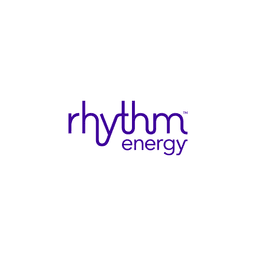Breaking Down the States that Have a Deregulated Energy Market (2024)
Considering a move to another state? One factor that might influence your decision is the price of electricity. Knowing which states have a deregulated energy market, where providers compete for your business, can help you decide. And although we’re partial to Texas (y’all come on down, ya hear?), our state is certainly not alone in seeing the advantages of deregulation.
States with Deregulated Energy Markets:
State | Deregulated Electricity Market | Deregulated Natural Gas Market |
California | X | X |
Colorado |
| X |
Connecticut | X | X |
Delaware | X | |
District of Columbia | X | X |
Florida |
| X |
Georgia |
| X |
Illinois | X | X |
Indiana |
| X |
Iowa |
| X |
Kentucky |
| X |
Maine | X | X |
Maryland | X | X |
Massachusetts | X | X |
Michigan | X | X |
Montana |
| X |
Nebraska |
| X |
New Hampshire | X | X |
New Jersey | X | X |
New Mexico |
| X |
New York | X | X |
Ohio | X | X |
Oregon | X | |
Pennsylvania | X | X |
Rhode Island | X | X |
South Dakota |
| X |
Texas | X | |
Virginia | X | X |
West Virginia |
| X |
Wyoming |
| X |
Deregulation was designed to keep utility companies from having a monopoly over energy generation, transmission, distribution, metering, and billing. Under deregulation:
Generating plants compete to sell their energy output in a wholesale market
Retail Electricity Providers (REPs) purchase wholesale energy and sell it to homes and businesses through electricity plans
Transmission and Distribution utilities (TDUs) manage the grid in a designated service area.
The main benefit to customers is that you can choose your own provider and plan. Greater choice means greater competition, which can mean lower prices as well as encouraging innovation within the energy industry.

A State by State Guide to Deregulation
California
Both electricity and natural gas are deregulated, with electric choice available through a lottery system. The average price of residential electricity per kilowatt hour is 26.72¢ per kilowatt hour (kWh). Leading utilities include Pacific Gas & Electric, San Diego Gas & Electric, and Southern California Edison.
Connecticut
Only electricity is deregulated. Electricity costs an average of 28.95¢ per kWh for homes. Utilities include Eversource (Previously Connecticut Power & Light) and United Illuminating.
Delaware
Deregulated electricity (but not natural gas) means average prices of 17.46¢ per kWh for homes, through Delmarva Power or Delaware Electric Cooperative.
District of Columbia
With both electricity and natural gas deregulated, the average price of residential electricity is 18.02¢ per kWh. Utilities include the Exelon subsidiary Potomac Electric Power Company (PEPCO).
Georgia
Deregulation of natural gas (only) has led to electric choice only for commercial and industrial users located outside of municipal limits and with a load of at least 900 kW. Prices for residential electricity are relatively low, averaging 13.75¢ per kWh for homes. Utilities include Georgia Power Company, Electric membership cooperatives (EMCs), and municipal power systems.
Illinois
Also with both electricity and natural gas deregulated, the average price for residential electricity is 15.83¢ per kWh. Utilities include Commonwealth Edison (ComEd) and Ameren Illinois.
Indiana
Indiana has only deregulated natural gas. The average price for residential electricity is 15.27¢ per kWh. Major utilities include I&M (AEP), NIPSO Electric, AES Indiana, CenterPoint Electric, and Duke Energy.
Maine
Only electricity has been deregulated. Residential power averages 29.13¢ per kWh, through Versant Power (formerly Emera Maine) and Central Maine Power Company.
Maryland
Deregulated both electricity and natural gas. Prices for home electricity average 18.4¢ per kWh. Utilities include Baltimore Gas and Electric, Choptank Electric Cooperative, Delmarva Power, Potomac Edison, PEPCO, and Southern Maryland Electric Cooperative.
Massachusetts
With both electricity and natural gas deregulated, prices for residential electricity average 28.02¢ per kWh. Utilities include Eversource, Unitil (Previously Fitchburg Gas & Electric), and National Grid.
Michigan
Both electricity and natural gas are deregulated here – although only 10% of the market has been deregulated, meaning that there is a long waiting list to switch your electric provider. Residents pay an average of 19.06¢ per kWh for electricity. Utilities include Consumers Energy, DTE Energy, Upper Peninsula Power Company, Upper Michigan Energy Resources, and Cloverland Electric Cooperative.
New Hampshire
Has deregulated only electricity. Residential electricity averages 25.76¢ per kWh. Major utilities include Public Service Company of New Hampshire, Liberty Utilities, Unitil, and New Hampshire Electric Cooperative.
New Jersey
Both electricity and natural gas are deregulated. Residents pay an average of 17.51¢ per kWh. Utilities include Atlantic City Electric, Jersey Central Power & Light, Public Service Electric & Gas, and Rockland Electric.
New York
Electricity and natural gas are deregulated. The price of electricity for homes averages 22.70¢ per kWh. Utilities include Central Hudson Gas & Electric, Consolidated Edison (ConEd), New York State Electric and Gas, National Grid, Orange & Rockland Utilities, and Rochester Gas & Electric.
Ohio
With both electricity and natural gas deregulated, residents pay an average of 16.01¢ per kWh. Utilities include American Electric Power Ohio, Dayton Power & Light, Duke Energy Ohio – and First Energy companies Ohio Edison, The Illuminating Company, and Toledo Edison.
Oregon
Only electricity is deregulated, but electric choice is only available to commercial and industrial users with electric demand of at least 30 kW, and that are in the Pacific Power or Portland General Electric service territories. Portland General Electric (PGE) and Pacific Power are the state's two largest electric utilities, and residents pay an average of 16¢ per kWh.
Pennsylvania
Deregulated both electricity and natural gas. The average price of residential electricity is 18.43¢ per kWh. Major utilities include Citizens’ Electric Company, Duquesne Light Company, Metropolitan Edison (Met-Ed), PECO Energy, Penelec, Pennsylvania Power, Pike County Light & Power, PPL Electric Utilities, UGI Utilities, Wellsboro Electric, and West Penn Power.
Rhode Island
Only electricity deregulated. The average price of electricity for homes is comparatively high, at 31.78¢ per kWh, and the major utility is National Grid.
Texas
Here in our favorite state, electricity is deregulated. Mostly, with a few outlying areas. Residents pay an average price of 14.71¢ per kWh. Major utilities include American Electric Power Central, American Electric Power North, CenterPoint Energy, Oncor Electric Delivery, Texas New Mexico Power, and Lubbock Power & Light.
Virginia
Both electricity and natural gas are deregulated, and electric choice is for commercial and industrial customers. However, residential customers can qualify if they are looking for a 100% renewable energy plan, and only when this option is not available from their local utility company. The average price of electricity for homes is 14.27¢ per kWh. Major utilities include Appalachian Power and Dominion Energy.
Moving to Texas? Check Us Out
At Rhythm Energy, we offer 100% renewable energy that is reliable and affordable, with customer service that can’t be beat. Visit gotrhythm.com to learn about what options are available in a service area by zip code.
FAQs
What's better: a regulated market or a deregulated market?
In a regulated market, utility companies set the price of electricity for all homes and businesses. In deregulated states, customers get to choose their provider and plan, leading to greater competition among providers to offer plans that suit your lifestyle and your budget.
Are there any risks associated with energy deregulation?
The primary risk comes with the fact that energy prices are determined by supply and demand, so they are less predictable. If energy costs go up, customers who are not on a fixed price plan could end up paying high prices.
How do I choose a Retail Electricity Provider (REP) in states with a deregulated energy market?
Compare plans, making sure that you take into account any hidden fees. You can find all of the information you need on a plan’s Energy Facts Label (EFL). Also, consider the reputation of any REP by reading customer reviews on topics like reliability, customer service, and customer satisfaction.
How does deregulation influence market prices?
The main impact of deregulation on prices comes through competition between REPs, which can lead to lower rates and better contract terms for plans.
What are the future trends in energy deregulation?
The growing trend toward deregulated markets offers more flexibility for those who self-generate power, e.g. through solar arrays and wind turbines. Other trends include the increased competition that deregulation brings (leading to improved efficiency and lower costs) as well as making distributed power generation, with multiple sources feeding the grid, more feasible.
Sources: TrueEnergy.com, EnergySage.Com, EnergyBot.com




